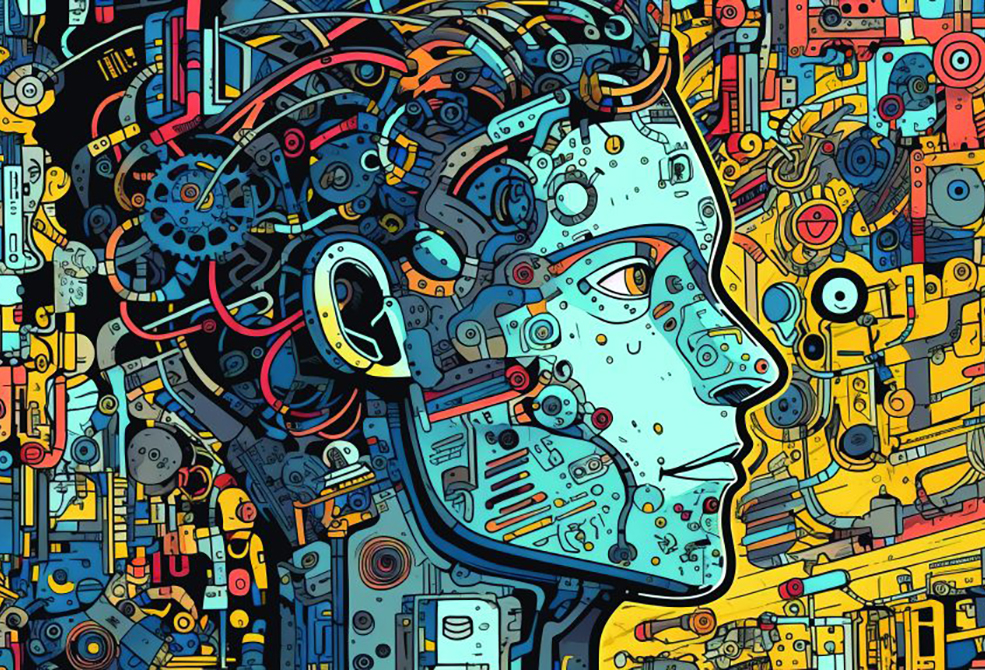Kiefer – AI Work
Another researcher harnessing AI video analysis is Adam Kiefer, assistant professor in the department of exercise and sport science, core faculty member in the Matthew Gfeller Center and co-director of the STAR Heel Performance Lab.
Kiefer’s research uses AI to predict athlete performance, injury prevention and recovery.
One project, funded by the National Institutes of Health, built an extended reality assessment platform to analyze athlete behavior and customize training for prevention of musculoskeletal injuries.
During trials, an athlete is fitted with a wireless virtual reality headset that can simulate a sport-like scenario. The athlete then runs though a drill, like running toward a goal while avoiding a virtual defender. Using this platform, body-worn sensors and cameras on the sideline, researchers gather a slew of movement pattern data, including muscle activation and eye tracking.
“We can feed that data into our virtual defenders in real-time so they know, for example, there’s an 80% chance that this athlete is going to go to the right of the defender, so shift over and take that away,” Kiefer said.
Thus far, the team has been focused on building the platform, called Automated Digital Assessment and Training (ADAPT). The next phase includes follow up studies with patient populations to test its effectiveness as an intervention in injury recovery.
The full story in the College of Arts & Sciences Magazine featuring other scientists in the College using AI-driven approaches can be found here: https://magazine.college.unc.edu/features/a-new-era-of-ai/



